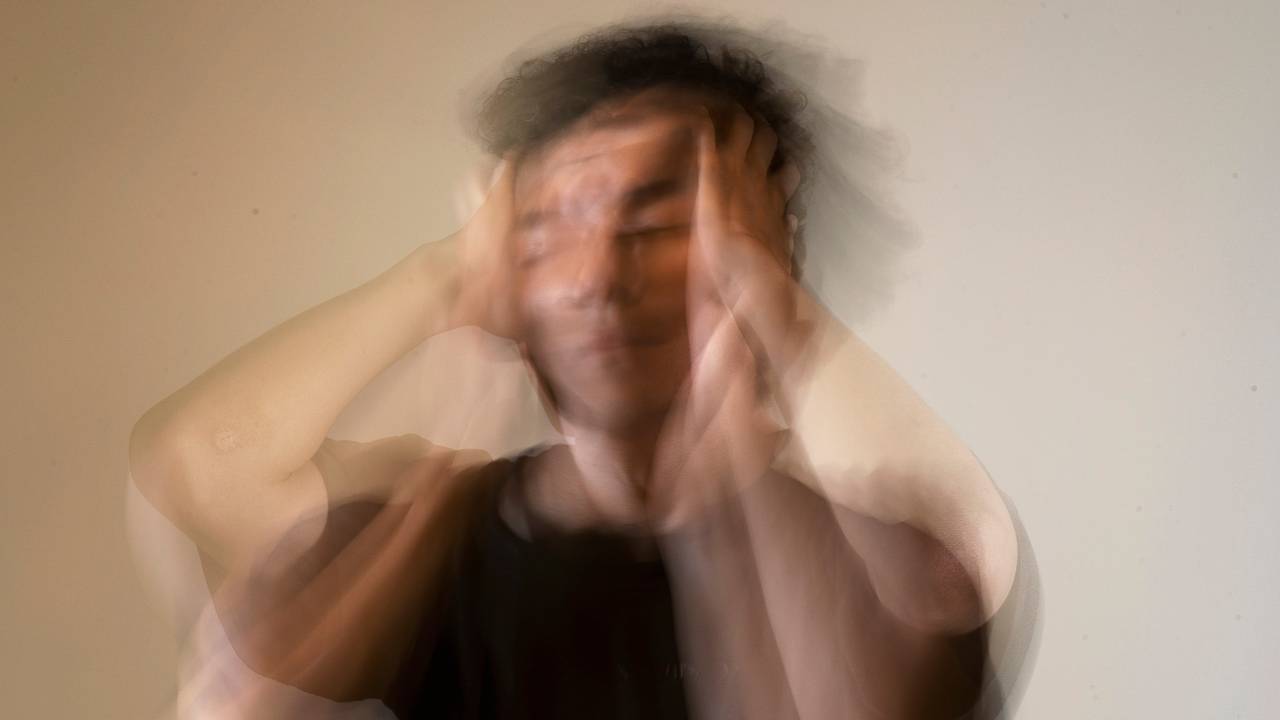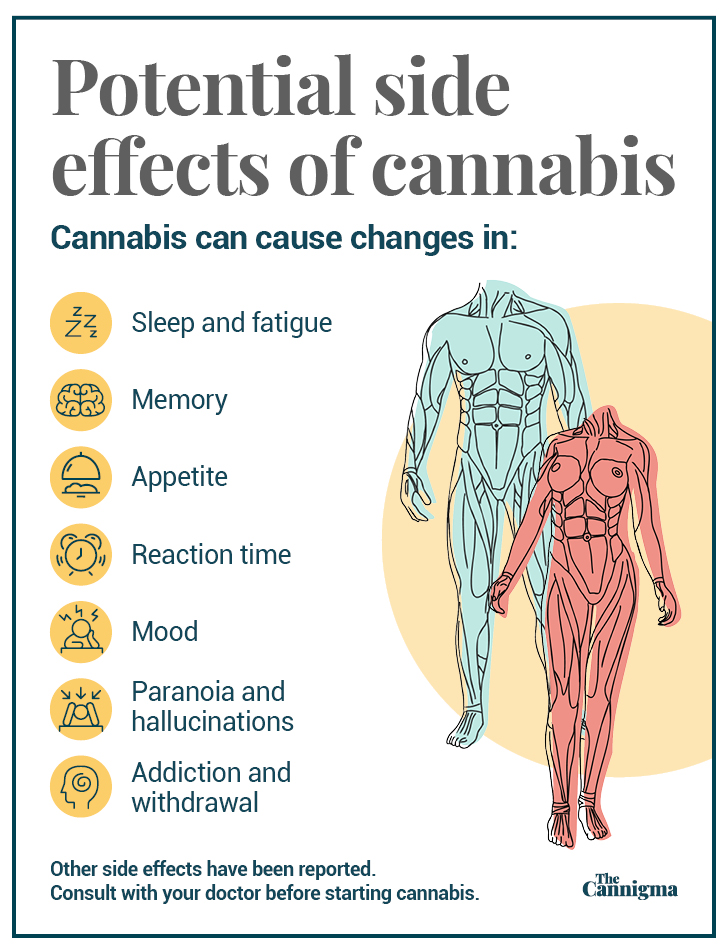Medical Marijuana for Depression
May 08, 2025
By Emily Earlenbaugh, PhD.
Medically reviewed by Roni Sharon, MD
This article first appeared on The Cannigma, September 22, 2019
Shared with permission from Codi Peterson, PharmD
Overview
Research and anecdotal evidence provide hope that Cannabis can be effective in helping patients cope with depression, especially less intoxicating varieties. Marijuana is widely used for its ability to elevate the mood, increase pleasurable sensations, both of which are effects that can help alleviate the symptoms of depression. It also interacts with the body’s endocannabinoid system, which plays an important role in regulating our moods.
In terms of choosing the right type of Cannabis to treat depression, preliminary research indicates that products with a chemical profile that includes THC and CBD, and terpenes beta-caryophyllene, linalool, and limonene are a good starting point.
Studies on Marijuana and Depression
By taking a closer look at the scientific research, we can gain a better understanding of how Cannabis treatments might actually impact those with depression, both in the short term and the long term.
First off, while research is still in its early stages, we can’t deny how popular marijuana is for the treatment of depression.
- A 2002 United Kingdom survey (1) of Cannabis use found that 22% of those with depression were using Cannabis. Another study of medical Cannabis patients from 2016 in Washington State found that half of the respondents reported using Cannabis for depression. In general, these patients indicated that Cannabis helps with their depressive symptoms.
- A study published in 2019 (2) surveyed 183 heterosexual couples that use Cannabis and found that both men and women were more likely to use Cannabis in the morning if they started the day in a worse mood. “Immediately after Cannabis use, positive affect increased, and hostile and anxious affect decreased relative to that day’s morning levels,” the study found.
- A 2016 review (3) of studies covering medical Cannabis and mental health found nine studies on using Cannabis for depression. Of these, seven showed that Cannabis use led to improvements in depression symptoms. Still, the authors noted that these improvements were primarily seen in studies of patients with other medical conditions, so it’s unclear whether these improvements in depression might be related to improvements in other medical conditions.
- A study published in 2018 (4) found that Cannabis users perceived a 50% reduction in depression symptoms, and only two puffs of Cannabis smoke was needed to relieve depression. The study found that low THC/high CBD Cannabis was best for reducing perceived symptoms of depression.
That said, researchers have also found that Cannabis use can cause depressive symptoms to worsen over time. One systematic One systematic review from 2013 (5) found that “Cannabis use, and particularly heavy Cannabis use, may be associated with an increased risk for developing depressive disorders.” In addition, a clinical study published in 2017 found that reducing Cannabis use (6) could result in less depression symptoms, and recommended that physicians treating patients with co-occurring Cannabis use and problems with anxiety, depression, or sleep quality, should attend to Cannabis use reduction as a component of treatment.”
But not all studies show this correlation. A large Swedish study (7) found that the association between Cannabis and depression disappeared when confounding factors were accounted for. An Israeli study found similar results, reporting that this association may be due more to sociodemographic and clinical factors than to Cannabis use itself.
In addition, research suggests (8) that Cannabis patients do better than those using opiods when it comes to depression. For treating both depression and chronic pain, Cannabis seems to be the option with less depressive side effects.
CBD for Depression
Research has also shown that CBD can be a particularly helpful treatment for depression, without the psychoactive effects of THC.
- A study published in 2018 (9) looked at the depression-fighting effects of CBD in rodent subjects, and found that a single dose could induce fast and sustained antidepressant-like effects.
- In 2014, a review of studies using animal models found that “CBD exhibited an antianxiety and antidepressant effects in animal models discussed.” That said, this could be related to the serotonin levels in the central nervous system, according to a study carried out using rodents in 2018. (10)
CBD has also shown promise as a treatment (11) for sleep issues and anxiety, the alleviation of which can help patients better cope with depression.
CBD Dosage for Depression
CBD dosage recommendations for depression are limited as there hasn’t been enough research into this issue. The 2018 study quoted above found that a single dose of CBD (between 10mg/kg and 30mg/kg) had antidepressant-like effects that lasted up to 7 days. It should be noted that this study was performed on rodents and not human subjects.
One high quality study (12) found that a single dose of 10mg per kilogram of body weight was effective for human subjects, though this study examined individuals that suffered from Social Anxiety Disorder rather than depression. Another study on CBD dosing for a variety of conditions and symptoms such as seizures, anxiety and Parkinson disease found that the active daily dosing range was between 1 and 50 mg of CBD per kilogram, and that “studies that used higher doses tended to have better therapeutic outcomes.”
Seeing there’s not much data on the matter, you can use the limited clinical data there is on CBD from the study on social anxiety, with a starting dose of 10mg per kilogram per day. Of course you should always consult your treating physician and/or a Cannabis health care professional before making any treatment decision, and they may well suggest higher doses.
How Cannabis Works on Depression
The endocannabinoid system (ECS) (13) exists in all vertebrates and helps regulate crucial functions such as sleep, pain, and appetite. The human body produces its own cannabinoids, which modulate and activate its various functions, but as its name suggests, the endocannabinoid system can also be modulated and activated by cannabinoids found in the Cannabis plant. Because the entire system was only discovered in the past 30 years, scientists still have much to learn about the myriad ways Cannabis affects the human body.
The endocannabinoid system is involved with mood regulation, and scientists believe that the cannabinoid receptors located primarily in the brain, called CB1 receptors, play a big role in the occurrence of depression.
In addition, animal studies have noted that those with depression demonstrate an impairment in the functioning of the ECS. Studies on rodent subjects, for example, found that blocking activation of the CB1 receptor (14) leads to increased depressive symptoms.
Similar results have been found in human testing as well. Rimonabant, for example, is a drug that was marketed in Europe as an appetite suppressant. It works by blocking CB1 receptor activity — because those receptors are associated with hunger response, scientists hoped they could reduce appetite by blocking this receptor. Unfortunately, the drug had to be pulled from the market because many of the patients using it developed depressive and anxiety symptoms. Thus, blocking CB1 in both animals and humans seems to produce the same mood altering effect — increased depression.
Researchers have also examined whether stimulating CB1 might produce antidepressant like properties. One study on rodent (15) subjects found that low doses of a CB1-activating substance did increase antidepressant activity and serotonin responses in similar ranges to an SSRI antidepressant. However, the same study found that high doses had an opposite effect, a biphasic response (16) which is often seen in Cannabis. The authors of this study say it confirms that CB1 should be a target for developing new antidepressants, and that cannabinoids from Cannabis might be a helpful treatment.
Still, given the complex, dose-dependant relationship between CB1 activation and depression, much more research is needed to confirm the theory that Cannabis can help treat depression.
Using Marijuana to Treat Depression
Given the research above, there is a good chance that using cannabinoids to activate your endocannabinoid system can help to temporarily alleviate depression symptoms. High-CBD options may be particularly helpful for this, but both THC and CBD seem to offer short term boosts in positivity and relief from depression symptoms. Still, it is important to note that research suggests these effects are dose dependent. Low doses may improve depression while high doses may exacerbate it.
In addition, some research points to the possibility that long term use of Cannabis can lead to worsening symptoms of depression. While these results were inconsistent between studies, and may be related to other factors, it is too early to say with confidence that Cannabis use won’t lead to these worsening depression symptoms.
Still, if you have other medical conditions related to your depression, Cannabis may be a better treatment option than alternatives.
One important factor when it comes to Cannabis treatment is the chemical profile you choose. There are thousands of Cannabis varieties, commonly referred to as strains, each with its own unique chemical profile. There is indeed a lack of research for specific types of Cannabis and depression, but Cannabis compounds that show particular potential for depression are the cannabinoids CBD and THC, and the terpenes beta-caryophyllene, limonene, and linalool. So, looking for less intoxicating Cannabis strains that have low or medium levels of THC, and high levels of these compounds would be a good place to start.
If you have depression and want to treat it with Cannabis, the best first step is to consult a medical doctor with a specialization in cannabinoid medicine to find out if it is the right option for you.
Potential Side Effects of Cannabis Use
While Cannabis may be helpful in treating depression, it does have some side effects which may be of particular interest to people coping with depression. In particular, THC has been known to trigger anxiety and paranoia in some users, which can aggravate depression. Cannabis can also cause temporary cognitive impairment, respiratory issues like chronic bronchitis, or cardiovascular issues like temporarily increased heart rate and blood pressure.
In addition, Cannabis can be habit forming, and patients must make sure to use it responsibly.

A note from the Editors: We are grateful to Cannigma for allowing us to share their article, as we believe the information holds value for our readers. Every contributor chooses their own language, and the vocabulary surrounding Cannabis has evolved significantly over the years. While terms like marijuana may carry different meanings for different people, we want to be clear: no terminology used in this newsletter is ever intended to perpetuate stigma or reinforce the negative impacts of past prohibition.
Additionally, the understanding of addiction as a potential effect of Cannabis has evolved over time. The views expressed in this article reflect the author’s perspective and do not represent the official stance of The Effective Cannabis Newsletter. For further information about Cannabis and addiction, please click here.
Refrences
1. M. A. Ware, H. Adams, G. W. Guy, Pain Centre, McGill University Health Centre, Montreal, Canada; GW Pharmaceuticals plc, Salisbury, UK, 06 October 2004, doi: 10.1111/j.1368-5031.2005.00271.x.
2. Maria Testa, Weijun Wang, Jaye L. Derrick, Whitney C. Brown, R. Lorraine Collins,
Does morning affect contribute to daily Cannabis use?, Addictive Behaviors, Volume 95, 2019,
Pages 64-69, ISSN 0306-4603, https://doi.org/10.1016/j.addbeh.2019.03.001.
3. Zach Walsh, Raul Gonzalez, Kim Crosby, Michelle S. Thiessen, Chris Carroll, Marcel O. Bonn-Miller,
Medical cannabis and mental health: A guided systematic review, Clinical Psychology Review, Volume 51,
2017, Pages 15-29, ISSN 0272-7358, https://doi.org/10.1016/j.cpr.2016.10.002.
4. Carrie Cuttler, Alexander Spradlin, Ryan J. McLaughlin, A naturalistic examination of the perceived effects of cannabis on negative affect, Journal of Affective Disorders, Volume 235, 2018, Pages 198-205,
ISSN 0165-0327, https://doi.org/10.1016/j.jad.2018.04.054.
5. Lev-Ran S, Roerecke M, Le Foll B, George TP, McKenzie K, Rehm J. The association between cannabis use and depression: a systematic review and meta-analysis of longitudinal studies. Psychological Medicine. 2014;44(4):797-810. doi:10.1017/S0033291713001438.
6. Hser, Yih-Ing et al. “Reductions in cannabis use are associated with improvements in anxiety, depression, and sleep quality, but not quality of life.” Journal of substance abuse treatment vol. 81 (2017): 53-58. doi:10.1016/j.jsat.2017.07.012.
7. Manrique-Garcia, E., Zammit, S., Dalman, C. et al. Cannabis use and depression: a longitudinal study of a national cohort of Swedish conscripts. BMC Psychiatry 12, 112 (2012). https://doi.org/10.1186/1471-244X-12-112.
8. Daniel Feingold, Silviu Brill, Itay Goor-Aryeh, Yael Delayahu, Shaul Lev-Ran, Depression and anxiety among chronic pain patients receiving prescription opioids and medical marijuana, Journal of Affective Disorders, Volume 218, 2017, Pages 1-7, ISSN 0165-0327, https://doi.org/10.1016/j.jad.2017.04.026.
9. Sales, A.J., Fogaça, M.V., Sartim, A.G. et al. Cannabidiol Induces Rapid and Sustained Antidepressant-Like Effects Through Increased BDNF Signaling and Synaptogenesis in the Prefrontal Cortex. Mol Neurobiol 56, 1070–1081 (2019). https://doi.org/10.1007/s12035-018-1143-4.
10. Sales, Amanda J et al. “Antidepressant-like effect induced by Cannabidiol is dependent on brain serotonin levels.” Progress in neuro-psychopharmacology & biological psychiatry vol. 86 (2018): 255-261. doi:10.1016/j.pnpbp.2018.06.002.
11. Shannon, Scott et al. “Cannabidiol in Anxiety and Sleep: A Large Case Series.” The Permanente journal vol. 23 (2019): 18-041. doi:10.7812/TPP/18-041.
12. Bergamaschi, Mateus M et al. “Cannabidiol reduces the anxiety induced by simulated public speaking in treatment-naïve social phobia patients.” Neuropsychopharmacology : official publication of the American College of Neuropsychopharmacology vol. 36,6 (2011): 1219-26. doi:10.1038/npp.2011.6.
13. Weil, Matan. “What Is the Endocannabinoid System?” The Cannigma, 18 June 2023, cannigma.com/physiology/an-overview-of-the-endocannabinoid-system/.
14. Nora D. Volkow, M.D. [email protected], et al. “Neuroscience of Addiction: Relevance to Prevention and Treatment.” American Journal of Psychiatry, 1 Aug. 2018, psychiatryonline.org/doi/full/10.1176/appi.ajp.2018.17101174.
15. Bambico, Francis Rodriguez, et al. “Cannabinoids Elicit Antidepressant-like Behavior and Activate Serotonergic Neurons through the Medial Prefrontal Cortex.” Journal of Neuroscience, Society for Neuroscience, 24 Oct. 2007, www.jneurosci.org/content/27/43/11700.
16. Emily Earlenbaugh, PhD. “Why Less Is Often More with Medical Cannabis.” The Cannigma, 14 Nov. 2021, cannigma.com/research/why-less-is-often-more-with-medical-cannabis/
About Emily Earlenbaugh, PhD.
Emily Earlenbaugh, PhD. is a Cannabis journalist and educator. She has a doctorate in philosophy of science from UC Davis. She regularly writes about Cannabis science and culture for publications like Forbes, Leafly, Cannabis Now Magazine, SF Chronicle’s GreenState, and HelloMD. Emily is the director of education for Mindful Cannabis Consulting, where she teaches patients how to find the Cannabis options that work best for them.
There is a wealth of quality medical Cannabis content at The Cannigma. Click the button to learn more.
Effective Cannabis Newsletter is a platform to educate on the vital role of the Endocannabinoid System (ECS) in one's health. The information is not intended or implied to be a substitute for professional medical advice, diagnosis, or treatment. All content, including text, graphics, images, and information, contained in or available through this newsletter is for general information purposes only. It is not medical advice; it is health awareness.
Were you moved or inspired by a piece of content?
Do you have a suggestion or question for us?
Do you have a powerful story about your health and Cannabis?
Click the button and let us know!




